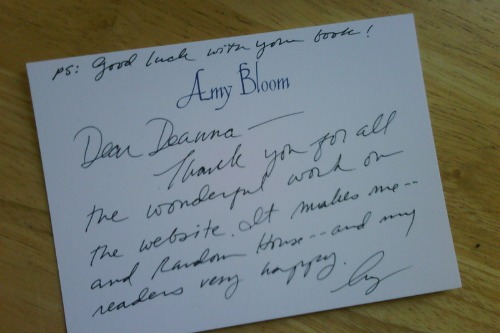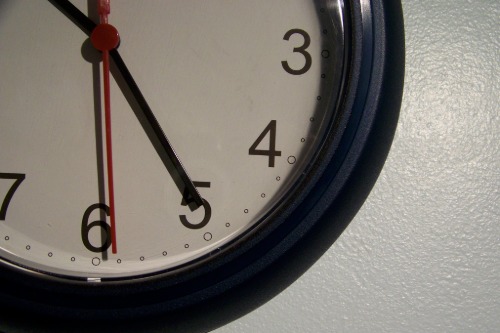1. The Knock Before Entering

In the past, knocking before entering a room was non-negotiable. Guests respected the sanctity of private spaces and never barged in uninvited. It was a small gesture that spoke volumes about awareness and manners. Hosts often judged visitors on this subtle act before anything else.
Knocking wasn’t just for bedrooms; even kitchens and studies merited it. The act showed an understanding that hospitality included respecting boundaries. Guests who forgot this were often seen as brash or inconsiderate. Today, it’s easy to overlook, but back then, it was a baseline expectation.
2. Removing Your Hat Indoors

Walking into someone’s home with your hat on used to be a major faux pas. It was seen as a sign of respect to remove it, especially for men. Hats symbolized status and public life, so taking them off was symbolic of entering a private, communal space. Hosts noticed instantly if you ignored this small courtesy.
Women, too, were expected to adjust their headwear appropriately. A neat appearance indoors signaled attentiveness to household etiquette. This simple action helped guests blend seamlessly into the home’s social rhythm. Today, it may seem quaint, but in its time, it was almost sacred.
3. Greeting Everyone in the Room

Guests were expected to say hello to every individual present, not just the host. It was considered polite to acknowledge each person, no matter how brief the encounter. Skipping someone could be interpreted as snubbing or social ignorance. This small effort helped maintain harmony and set a welcoming tone.
The greeting often came with a handshake or a bow of the head. It was a way to signal that you were present and engaged. Hosts appreciated it because it showed social awareness. Missing this ritual could make the visit awkward before it even began.
4. Offering to Help with Chores

Arriving and immediately offering help in small household tasks was a mark of good upbringing. Guests were expected to show gratitude by easing the burden on hosts. Even if the offer was politely declined, the gesture mattered more than the action itself. It signaled respect for the effort the host invested in preparing for the visit.
This could mean helping set the table or carrying firewood. Hosts often used the response to gauge a guest’s character. Those who offered willingly earned quiet admiration, even if refused. Today, it might feel unnecessary, but it once defined social grace.
5. Complimenting Specific Dishes

Guests were encouraged to offer genuine compliments on food or drink. Saying “this is good” wasn’t enough; specifics mattered, like “the rosemary in this roast is perfect.” It showed attentiveness and appreciation for the host’s effort. Hosts relied on these details to understand their guests’ tastes and refine their hospitality.
Generic praise was often seen as lazy or insincere. Guests who noticed small details were considered more cultured. Sharing these observations could spark conversation and camaraderie. It was an unspoken rule that elevated mealtime into an art form.
6. Writing a Thank-You Note

A handwritten thank-you note was expected after a visit, no exceptions. It reflected thoughtfulness and acknowledgment of the host’s effort. The note didn’t have to be long, but it had to be timely and sincere. Neglecting this could label a guest as careless or ungrateful.
This practice extended beyond just parties or dinners. Even a simple afternoon tea warranted a follow-up. Hosts treasured these notes as tokens of respect and memory. Today, emails and texts exist, but the personal touch of a note was once essential.
7. Avoiding the Politics Table

Savvy guests knew better than to dive into contentious debates at the dinner table. Conversations around religion or politics were carefully navigated to avoid tension. It was understood that part of good manners was preserving the harmony of the home. Ignoring this often led to subtle judgment from hosts and other guests.
Guests would instead focus on neutral or uplifting topics. Stories of travel, hobbies, and shared acquaintances were safer bets. This etiquette preserved the spirit of the gathering. It was about enjoying company, not scoring arguments.
8. Offering to Coat or Assist With Outerwear

When arriving or leaving, guests would offer to help hang coats or remove outerwear. It was a small sign of attentiveness and care for the home. This gesture showed the guest was not just present but considerate. Hosts noticed these attentions as a reflection of upbringing and courtesy.
It wasn’t limited to just physical help; guests might also ask if refreshments were needed for themselves or others. The idea was to keep the household running smoothly. Even a brief visit was an opportunity to demonstrate respect. Today, many skip this, but it was once a mark of elegance.
9. Punctuality Was Politeness

Showing up on time wasn’t just about schedules; it was a reflection of respect. Guests who arrived late without notice were viewed as selfish or inconsiderate. Being prompt acknowledged the host’s effort in preparation. Social gatherings ran like clockwork when everyone understood this unspoken rule.
Hosts planned meals, seating, and entertainment around timing. Arriving late could throw off the rhythm of an event. Punctuality was a silent but powerful compliment to the host. It showed that your presence was valued, not taken for granted.
10. Following the Host’s Lead on Seating

Guests didn’t plop down anywhere—they waited for the host’s cue. Seating arrangements were often strategic, reflecting social hierarchies or comfort. Jumping the gun could offend or confuse the household’s order. Waiting patiently signaled humility and social awareness.
Sometimes, the host would even insist on rearranging chairs to fit personalities. Guests who complied gracefully earned subtle approval. This etiquette reinforced respect for the home as a shared social stage. Today, we might not notice, but it shaped early gatherings significantly.
11. Modest Praise of Gifts

If a guest received a gift, over-the-top enthusiasm was discouraged. Sincere but restrained thanks was the norm. It showed gratitude without inflating expectations or causing discomfort. Excessive praise could make hosts feel awkward or pressured.
Guests were expected to reflect thoughtfulness in return. Writing a note or mentioning how the gift was used later was ideal. This balance of modesty and acknowledgment strengthened social bonds. Today, many still appreciate this subtle practice.
12. Respecting Quiet Hours

Even during visits, guests were expected to honor the home’s quiet times. Loud voices, late-night activities, or wandering into private areas were frowned upon. This code recognized that hospitality came with boundaries. Following it made guests welcome for longer stays and repeat invitations.
Hosts expected visitors to tune into household rhythms. Meals, bedtime, and leisure times were part of this etiquette. Guests who ignored these cues risked being politely excused. It’s a reminder that hospitality was once as much about restraint as it was about warmth.
This post 12 Forgotten Codes of American Hospitality That Guests Used to Swear By was first published on American Charm.


